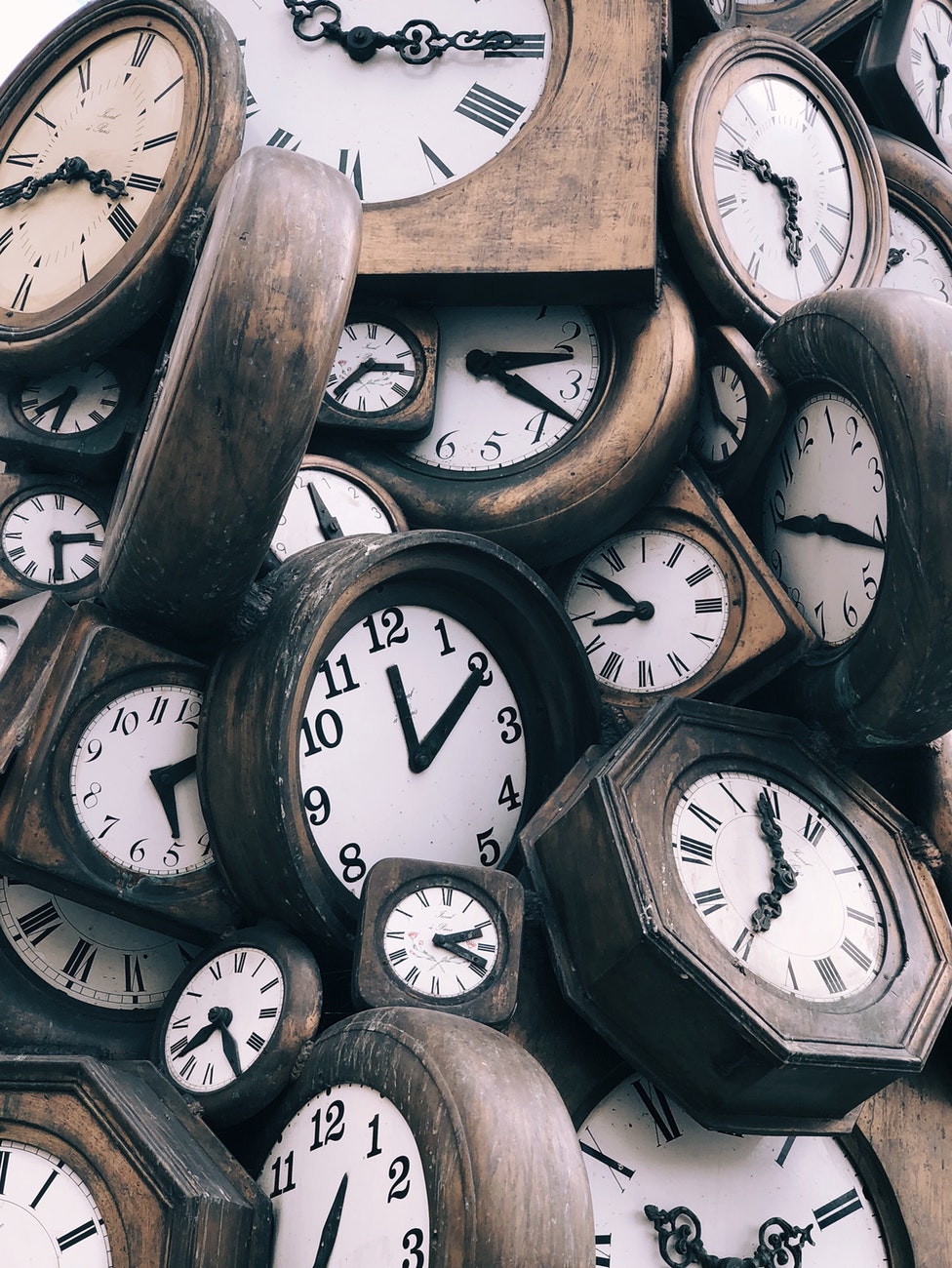Summary
Einstein confused his students with a riddle about probability – or was it Einstein himself who was confused?
Albert Einstein disliked the idea that the laws of nature were inherently probabilistic. ‘God does not play dice with the universe,’ he stated famously and repeatedly. Yet, physicists like Niels Bohr strongly advocated the idea –based on the ‘Copenhagen interpretation’ of quantum theory– that chance is an inalienable and inevitable aspect of nature itself.
To Einstein, the recourse to chance must have felt like giving up. A perfect understanding of nature should allow perfect predictions; hence, the statement that chance is inherent to nature is nothing more than a veiled confession of ignorance – something is not being understood, and this lack of understanding is mistaken for ‘chance’. Even though we sympathize with Einstein’s view on general principle, the modern consensus in physics is that Bohr won the debate (Kumar 2009); there exist interpretations of quantum theory that are consistent with a deterministic universe (Earman 1986), but they are currently not mainstream.
[box type=”shadow”]Einstein’s Beef with Quantum Theory
 Figure 1: Albert Einstein (1879–1955) during a lecture in Vienna in 1921. Source: Wikepedia. Photo taken by Ferdinand Schmutzer, and restored by Adam Cuerden.
Figure 1: Albert Einstein (1879–1955) during a lecture in Vienna in 1921. Source: Wikepedia. Photo taken by Ferdinand Schmutzer, and restored by Adam Cuerden.
In the standard, ‘Copenhagen’ interpretation of quantum mechanics, “physical systems generally do not have definite properties prior to being measured, and quantum mechanics can only predict the probabilities that measurements will produce certain results. The act of measurement affects the system, causing the set of probabilities to reduce to only one of the possible values immediately after the measurement.”
Einstein objected to the Copenhagen interpretation, but there is some debate about which aspect of the interpretation bothered him the most. Max Born, the 1954 Nobel laureate in physics and a lifelong friend of Einstein, believed that Einstein was reluctant to sacrifice the idea that the universe is deterministic and that everything has a cause. This opinion is consistent with Einstein’s statement that ‘God does not play dice with the universe’. In addition, Einstein explicitly stated that the probabilistic basis of the Copenhagen interpretation was unsatisfactory to him: “I am, in fact, firmly convinced that the essential statistical character of contemporary quantum theory is solely to be ascribed to the fact that this [theory] operates with an incomplete description of physical systems.” (Einstein 1949, as cited in Kumar 2009)
On the other hand, Wolfgang Pauli, the 1945 Nobel laureate in physics, believed that Einstein’s primary objection to the Copenhagen interpretation was one of realism, not determinism; in support of this conjecture, Einstein himself wrote that “At the heart of the problem is not so much the question of causality but the question of realism” (Einstein, 1950, as cited in Kumar 2009). In other words, Einstein rejected the Copenhagen interpretation that reality does not exist independent of the observer, and he once asked a colleague “Do you really think the moon isn’t there if you aren’t looking at it?”
The foregoing suggests that both aspects of the Copenhagen interpretation Einstein found intolerable. To Einstein, the fact that probability needed to be invoked suggested that the theory was incomplete, and the idea that reality does not exist independently from the observer suggested that the theory was flawed. More details are provided in Kumar (2009).
[/box]It is against this background –Einstein arguing that chance is not fundamental to nature, and that the concept only acts to mask our ignorance– that the anecdote below acquires its appeal.
The Riddle
In the excellent article by Holmes (2018), we encounter the following fragment1:
David Mumford suggested in a paper entitled ‘Intelligent design found in the sky with p < 0.001’ that the positioning of the stars in the Orion constellation were so particular that only intelligent design could explain them. However, in his calculations he starts by asking what the probability is that the stars of Orion are so aligned. This argument suffers from the blade-of-grass paradox, as put by Diaconis (New York Times, 1990):
“If you were to stand in a field and reach down to touch a blade of grass, there are millions of grass blades that you might touch. But you will, in fact, touch one of them. The a priori fact that the blade you touch will be any particular one has an extremely tiny probability, but such an occurrence must take place if you are going to touch a blade of grass.”*
* A similar argument by Einstein was related by Wigner in his autobiography: “Life is finite. Time is infinite. The probability that I am alive today is zero. In spite of this, I am now alive. Now how is that?” None of his students had an answer. After a pause, Einstein said, “Well, after the fact, one should not ask for probabilities.”
Let’s focus on the Einstein anecdote described by Wigner, yet another physics Nobel prize laureate. At first sight, Einstein appears to make a valid point – yes, Einstein’s existence is a stroke of extreme luck, and so it is for all of us alive today. Let’s drive this point home. You are you in part because of your genetic makeup, and the probability that your mother’s and your father’s genes combined the way they did –to then produce you– is extremely small.2 In this sense, you are the unlikely winner of an genetic lottery. But your luck does not stop there. Your father and your mother also had to be unlikely winners of a different genetic lottery, as is the case for all of your ancestors. This means that in order to exist, your ancestors had to win a long and unbroken sequence of lotteries against heavy odds.
And this, of course, only refers to the genetic part of existence. What we have left out is the foreplay, that is, the chances that your ancestors grew up and eventually met one another under circumstances conducive to procreation –under a full moon, with violins playing in the background, and perhaps after having had a few drinks– going back all the way to the mindless mating in the primordial soup.
From such considerations it is evident that your existence, just as that of any other creature alive today, depends on a long series of extremely unlikely occurrences – an unbroken chain of continuous dumb luck that stretches back over a billion years. And when it comes to dumb luck, we have not even touched upon other unlikely events of great importance, such as the probability that a clump of stellar dust would cool down to form our earth, a planet that just happens to be ideally positioned and equipped to sustain life, or the probability that a meteor would crash into earth, just in time to liberate it from dinosaur dominance; the list goes on and on.
It seems therefore that Einstein is right: the probability that any of us should be alive today is essentially zero. And yet, the deterministic viewpoint –championed by Einstein himself– leads us to the exact opposite conclusion. Let’s travel back in time to the classroom where Einstein posed his riddle, and introduce Theodore, an inquisitive and at times obnoxious student:
Einstein: “Life is finite. Time is infinite. The probability that I am alive today is zero. In spite of this, I am now alive. Now how is that?”
Theodore: “Sorry professor, but you are pacing and lecturing right in front of us. This means that –barring dream or hallucination– the probability that you are alive today is very near one. I must be missing something.”
Einstein: “Ah, well, yes. Maybe I should clarify what I mean with the word ‘probability’. Clearly I am alive now. And this is the conundrum, for the advance probability of this happening is basically zero; even when you just consider it from a vantage point as recent as the time of Napoleon.”
Theodore: “But professor, this makes it even less sense to me. You have stressed that God does not play dice with the universe; we inhabit only a single universe, and it unfolds according to the laws of physics, in which chance ultimately does not exist. Only one universe was ever possible, and it is the one we currently inhabit; in it, you are currently very much alive. So even if we go back to the time of the dinosaurs, your existence was never improbable; in fact, it was inevitable: the probability remains one, not zero.”
Einstein: [muttering something under his breath]
Theodore: “Professor?”
Einstein: “Well, perhaps. But we can agree that the advance probability of my existence is zero from the perspective of any particular person: it would have been impossible for, say, Napoleon, to have predicted my existence. We can’t even predict next week’s weather reliably! This just underscores my main point, namely that, after the fact, one should not ask for probabilities.”
Theodore: “Professor, I agree that the advance probability of your existence is virtually zero when it is viewed as the degree to which any one person could have predicted it. But I don’t think it follows that we can never ask for probabilities after the fact. All we need to do is exercise mental discipline and put our mind in the same state it was in before the data were obtained. This way we can make predictions even for events that have already occurred.”
Einstein: “And do you think this is feasible? Suppose we conduct a séance and I am able to talk to Napoleon. He would have to agree that the probability that I am currently alive is one, or very close to one. But how can we clear his mind of the knowledge he now has? We would have to ask him to forget our encounter. Or perhaps we just conduct the séance without me being present. You can then ask Napoleon’s spirit something like ‘what do you think is the probability that, some hundred years after your death, a physicist called Albert Einstein will be teaching a class in Princeton, on a sunny Wednesday afternoon at 3 pm, while his most obnoxious student, Theodore, accuses him of failing to understand his own material?’ Would Napoleon answer ‘that probability strikes me as virtually zero’, or would he suspect that the act of asking the question provides a hint that the probability is non-negligible?”
Theodore: “But professor, such guessing-games are the limitation of the human mind. It is not a principled limitation.3 Moreover, for less extreme situations it may work very well. For instance, suppose you were to stand in a field and reach down to touch a blade of grass. There are millions of grass blades that you might touch. But you will, in fact, touch one of them. Still we can answer the question ‘given that you were going to reach down and touch a blade of grass, what is the probability of touching this particular one?’. Of course that probability is again 1, because what has happened is the only possibility; but one might ask ‘at the time that I walked unto the field, what prediction would I have made about touching this particular blade?’ The answer will be approximate but it is nonetheless possible to formulate one. Another counterexample concerns events from the past about which we are unsure. For instance, what is the probability that Shakespeare’s plays were written by Edward de Vere? What is the probability that Julius Caesar’s last utterance was ‘et tu, Brute?’ or words to that affect? What is the probability that, on 31 October 1517, Martin Luther nailed ninety-five theses to the door of the All Saints’ Church in Wittenberg?”4
Here we leave Einstein’s classroom. It should be clear by now that, even for the most brilliant scientists, the concept of probability represents a philosophical minefield, one whose secure crossing requires constant vigilance. As mentioned already by Herschel (1851, p. 219), the doctrine of probabilities is “one of the most difficult and delicate among the applications of mathematics to natural philosophy.”
Like this post?
Subscribe to the JASP newsletter to receive regular updates about JASP including the latest Bayesian Spectacles blog posts! You can unsubscribe at any time.
Footnotes
1 paraphrased for the reader’s benefit.
2 We can be more specific. Humans have 23 pairs of chromosomes; of each pair, one is inherited from the father and one from the mother. For a single specific chromosome pair, the a priori probability that it would combine to yours is 0.5 (50% chance of getting the matching one from dad) times 0.5 (50% chance of getting the matching one from mom), equaling 0.25. But this needs to happen for all 23 pairs, yielding an overall probability of 0.2523 . This is roughly 1 in 100,000,000,000,000. And this computation ignores biological processes such as genetic recombination through chromosomal crossover, which will lower this probability still further.
3 Had Theodore been alive today, he may have exemplified his argument by mentioning artificial intelligence systems. In such systems, mental time travel is possible provided that the system has access to its previous state.
4 NB. None of these events are supported by compelling historical evidence.
Want to know more?
Holmes, S. (2018). Statistical proof? The problem of irreproducibility. Bulletin of the American Mathematical Society, 55, 31-55.
Kumar, M. (2009). Quantum: Einstein, Bohr and the Great Debate about the Nature of Reality. London: Icon Books.
About The Author

Eric-Jan Wagenmakers
Eric-Jan (EJ) Wagenmakers is professor at the Psychological Methods Group at the University of Amsterdam.



